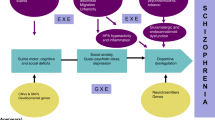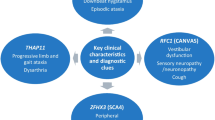Abstract
In the last few years, the genetic contribution to Parkinson’s disease has gained major attention and resulted in the identification of four gene loci in autosomal dominant and autosomal recessive Parkinson’s disease. Several mutations in two genes have been shown to be responsible for neuronal cell death in Parkinsons’s disease. One of the gene products involved, α-synuclein, is a major component of Lewy bodies, the neuropathological feature of Parkinson’s disease. In contrast, mutations in the parkin gene are associated with parkinsonism without Lewy body pathology. The elucidation of polygenic changes in the dopamine pathway, mitochondrial dysfunction, and of xenobiotic metabolism is technically now possible by means of association and genotype studies. The increasing knowledge of the pathogenesis of Parkinson’s disease at a molecular level will have important implications for the development of individual therapeutic strategies to prevent disease progression.
Similar content being viewed by others
Author information
Authors and Affiliations
Rights and permissions
About this article
Cite this article
Riess, O., Kuhn, W. & Krüger, R. Genetic influence on the development of Parkinson’s disease. J Neurol 247 (Suppl 2), II69–II74 (2000). https://doi.org/10.1007/PL00007764
Issue Date:
DOI: https://doi.org/10.1007/PL00007764




